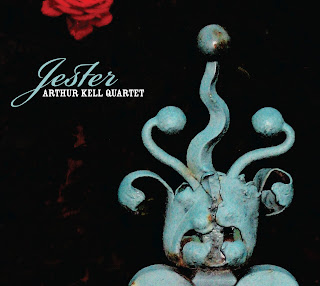
KIRPAL GORDON: Donald, first let me say congratulations on the recent publication of your new collection, A Very Funny Fellow, your fourteenth book of poems, as well as your appointment as the
DONALD LEV: The book came out in February, and since it’s a pretty
substantial collection put out by a good publisher in my 76th year,
I thought I’d give it a shot. So I set up a sort of mini-book-tour. Not being
much of a traveler the tour took me only as far north as Albany Woodstock
KIRPAL GORDON: Raymond Hammond at New York Quarterly Books did a fine
job putting together 92 of your short poems which are wry, quirky narratives on
the foibles of being human. The only thing that bugged me was the story behind
its title, A Very Funny Fellow, but I
may have missed the joke. When Marguerite Harris called you around 1971 to tell
you, “You’re a very funny fellow, but you are no poet,” what was she thinking?
Is she hung up on formalism all these years after William Carlos Williams’
variable foot? The achievement of the book---and of your style---is the exact
sound of your mind and mouth in print; the poetry’s in the event, not how much
poetic language you can scaffold on to it. Like:
A Man and His Clone
I am on a westbound train, sitting
at a white tableclothed table playing casino with my cloned son Robert.
Robert’s not too bright, but he’s
goodhearted, or wants to be.
He is beating me more often than not
at this game I’ve taught him, which my father (of whom, unfortunately, I’m no
clone) taught me.
I think we are in Oklahoma New Mexico
I would ask Robert where we are,
only I know he wouldn’t know if I don’t.
We are on our way to California
Why can’t she call you funny AND a poet?
DONALD LEV: Well, Maggie was this very opinionated old battleaxe (I don’t
think they make those anymore) at the time and was certain she knew (She wasn’t the only one. I wish
she was.) what a poem really was. She was kind of old fashioned, but, in a way,
genuinely majestic. I liked her, actually. I didn’t mind what she said (I had a certain confidence in my work), I just
thought it had a kind of stylishness and kept it in mind all these years.
KIRPAL GORDON: What about economy of language? What better gift to give
the reader and what better image painted than when told with not one extra
syllable. Like your elegy to Ira Cohen:
The Return
All sounds stopped. The instruments
muted.
If birds there were, they were
unheard.
And every soul sat cross-legged on
the ground
intoning eternal ohm to energize
ailing poet, home at last from his
travels,
head bowed under his large hat
like sleeping mexican under sombrero
on my mother’s cookie jar.
It’s all there, Donald. What do you say to that?
DONALD LEV: The poem was written some years before Ira Cohen died. I was
present at a reading he gave at the Colony in Woodstock
KIRPAL GORDON: Lawrence Bush nailed it when he called you “America’s
great taxi driver, telling stories so rich, observant and personal that you
forget all about the running meter and the appointments you need to keep. This
collection has a huge, comfy back seat.” You drove a cab back in the day, what,
for twenty years?
DONALD LEV: I’m the last victim of the great newspaper strike of
1962-63. We were out so long the strike funds ran out, then after more waiting
I got unemployment. There was no work around, so when some friends were going
out to California San Francisco Brooklyn I threw commercial plates on my hatchback
and became a courier. And wound up distributing publications I told myself were
of “cultural interest” beginning with the New York Poetry Calendar and ending
with The Aquarian. A good swath of the 70’s I spent messengering for the
display ad dept. of the Village Voice, where I was also publishing a lot of
poetry and prose poetry at pretty good rates.
KIRPAL GORDON: You also worked in the wire rooms of the Daily News
and the New York Times and you’re in one of my all-time
favorite-films-on-a-desert-island list, “Putney Swope,” directed by Robert
Downey, Sr. You play the part of the poet in a film that is a work of poetry, I
mean the ad agency head dies on the spot and a token black art director gets
voted CEO---it’s a total hoot and send-up of Madison Avenue’s invasion of our
skulls, a celebration of words and a retaliation against the jingles that sell
us soap: the Beat Generation Meets the Black Arts Movement, and the script is
hilarious. And those two repeating phrases---“How many syllables, Mario?” and “Putney
says the Boorman Sixth Girl has got to have soul!”---I still hear people say
them on the street. What were these
experiences like?
DONALD LEV: I used to live in Forest Hills , Queens , where Bob Downey
also lived. He used a number of us from the neighborhood in some of his films.
And sometimes I’d be driving crews to different locations. Robert Downey Jr.
and I both made our film debuts in his father’s film “Chafed Elbows,” he in his
mother Elsie’s arms (Elsie was a wonderful actress and comedienne in her own
right) and I getting thrown off a roof in Burns Street Forest Hills . How I and my poem
“HYN” got into “Putney Swope” was thus. I was giving my first featured reading
in a place called Olivia’s Atelier East, which was attached to the old Broadway
Central Hotel, at the same time Bob and some of my musician friends were
performing some music that was supposed to go into “Putney Swope” nearby at the
Bitter End. Anyway he came over and caught my reading and said he wanted to use
my poem “HYN” in the film. Which happened. I got paid $75. $50 for reciting the
poem and $25 for milling around in the picket scene. I was told it was “union
scale.” My apex in the film industry. And to this day, I guess HYN is my most
widely distributed poem. And aside from all this it is a great film, isn’t it?
I think now some of Downey
 |
|
KIRPAL GORDON: Yikes, talking with you takes me back, lad, to the first
time I saw Home Planet News in the
early 80s. It was a big hit with my creative writing students, both in college
and in prison. I think the young as well as the incarcerated appreciate its
candor and lack of pretension. I enjoy the tabloid newspaper look, the
no-frills approach, but more, the poems and reviews move me. Sometimes it’s
hard to find a magazine that makes me want to read all of the contents, but HPN gets my vote. So what’s it been like
doing this project since 1969? You also ran a bookshop called the Home Planet
News?
DONALD LEV: The Home Planet Book Shop was in 1970 or ’71. I had already
launched my first mag, HYN Poetry
Quarterly & New York Muse, A Yellow Journal of the Arts, which ended
its life titled HYN Anthology with
its 4th issue published in 1975. It was just a storefront I paid too
much rent for on E. 9th &
Ave. C that I moved to because my girlfriend of the time was bored on
University Place (we lived in the Albert Hotel) and wanted to live somewhere
more exciting. So I threw some books in the window, kept a big urn of half
Maxwell House, half Bustelo going, and had poetry readings practically every
night for company. Anyway I was sharing a loft at 334 Bowery with a
photographer named Paul Henning when HYN died, and I began work as editor on a
newsprint literary magazine called Poets,
published by a mad genius named Mike Devlin, who had an office on Union Square
in which were half the files of a publication called Poets & Poetry he published formerly (the other half of the
files became Dodeca and then Contact Two). I got Enid, who I knew
from an organization called The New York Poets’ Cooperative, to come in as an
associate editor. She and I got together at editorial meetings, moved in
together, and when Mike disappeared with the boards of Poets #6 under his arm, Enid
KIRPAL GORDON: I remember the first time I heard you and your life
partner, Enid Dame, give a reading together in Staten Island in 1983. What has
stayed with me was the rapport the two of you built with the audience. You both
work different sides of the street as poets but the compliment of talents
proved to me that a skillful line-up is greater than the sum of its parts. Now
that she has passed, I’ve seen you read a few times on your own, and you’re
still building rapport with the audience. Talk about the art of reading your
work in front of others.
DONALD LEV: I broke the public reading ice in 1967 (long after I started
writing and publishing my poetry) on Gansevoort Street Pier in the Village
where they had open readings Sunday afternoons started by poet/actor Ed Blair
sometime in the early 60’s. A lot of people weren’t there for the poetry and it
was noisy, and there was no mic! So you had to learn to project. Which I did. I
guess there’s just something about projection that’s enjoyable, because I’ve
been projecting ever since and enjoying it.
KIRPAL GORDON: Tell us more about the Madeline Sadin Award from New
York Quarterly you were given as well the Lifetime Achievement Award you
received from from the Catskill Reading Society/Outloudbooks.
DONALD LEV: The Madeline Sadin Award used to be awarded for the best
poem in each issue of New York Quarterly. Mine was for a poem called
“Wilderness” which appeared I think sometime in ’73 and was about God getting
arrested. The Catskill Reading Society is Bob Richards and his family who live
high on Red Mountain Connecticut Enid
KIRPAL GORDON: How do Giant Steps Press blog readers stay in better
touch with all that you do?
DONALD LEV: Subscribe to Home Planet News. $12 will get you 3 issues.
Address is P.O. Box 455 , High Falls , NY 12440



.jpeg)


